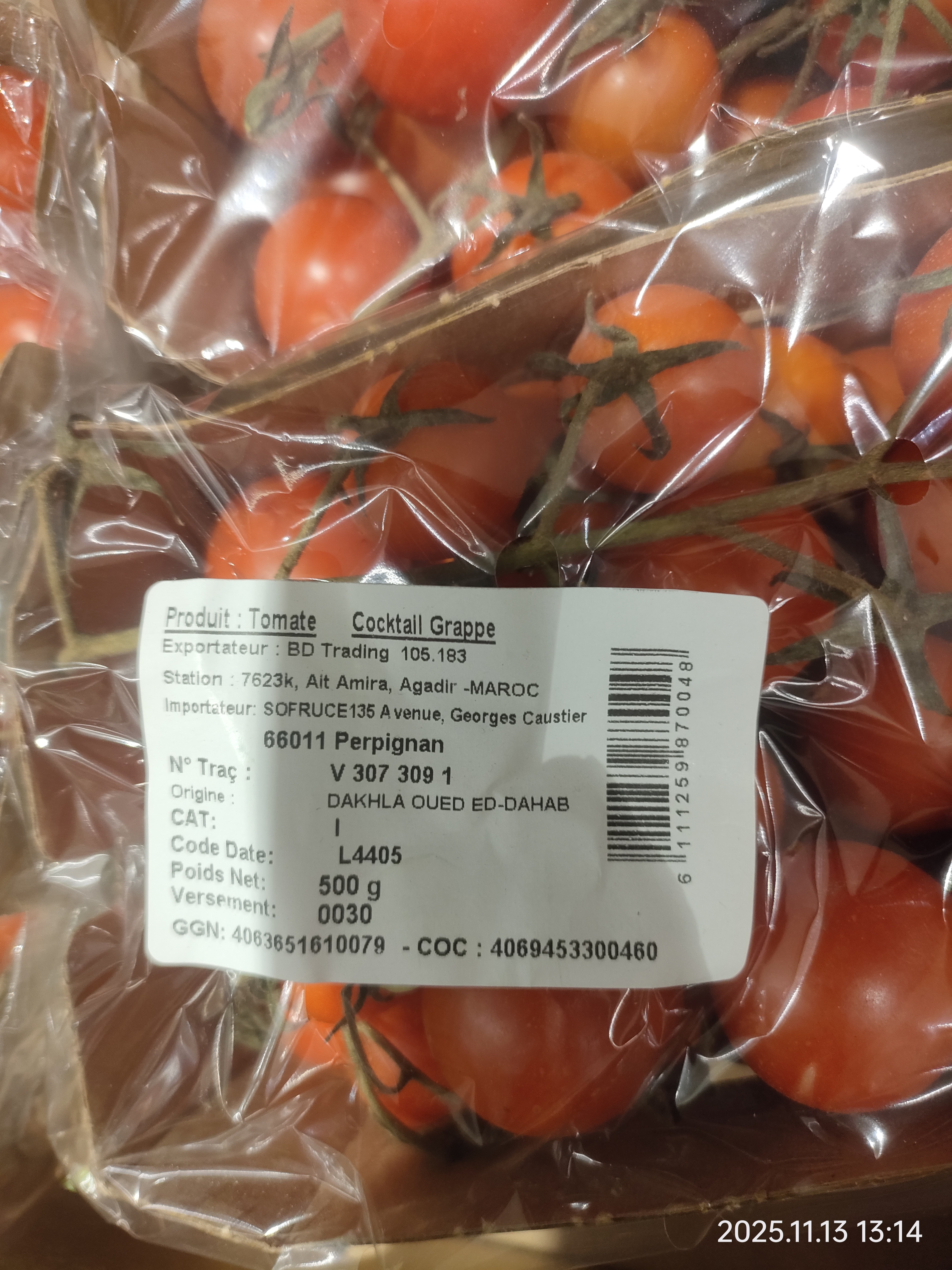
Labelling those products as originating in the Kingdom of Morocco instead of originating in Western Sahara breaches EU law, the Advocate General of the EU Court of Justice concludes.
Photo (@ElliLorz): The plantation Maraîchage du Sahara 1 is one of a dozen tomato plantations in Western Sahara that have been exporting produce from the occupied territory into the EU market.
“Products originating in the territory of Western Sahara should be labelled as such, to the exclusion of any other provenance”, the Advocate General to Europe's top Court stated on Thursday 21 March 2024.
The case before the Court concerns a referral by the French Council of State, which had been seized by a French trade union of farmers, Confédération Paysanne, who seek clarification on two issues: first, whether produce from Western Sahara should be labelled as from Western Sahara, rather than from Morocco, to be in line with EU laws and regulations; and second, whether the French authorities have the power to prohibit imports of fruits and vegetables in case of non-compliance on rules-of-origin.
Concretely, the farmers are concerned over the continued imports of fruits and vegetables from Western Sahara that are certified as Moroccan, when the highest Court of the EU has concluded on multiple occasions that Western Sahara is a territory that is separate and distinct from Morocco, and that Morocco has no sovereignty or administering mandate over the territory.
The French Court chose to refer the matter to the EU Court of Justice in June 2022.
While a ruling is still pending, today the Advocate General appointed for the case has issued her conclusion that fruits from Western Sahara must bear a country of origin label that correctly reflects their origin in that territory.
Read the full Opinion of the Advocate General here.
“EU foodstuff labelling law, like the EU customs rules, requires that the territory of Western Sahara be indicated as the country of origin of melons and tomatoes grown and harvested in that territory”, the Court's press release reads.
Recalling the separate and distinct status that Western Sahara has, including from Morocco, Advocate General Tamara Ćapeta deems that not referring to Western Sahara as the country of origin risks misleading EU consumers. In addition, it would run counter to the EU's stated position on Western Sahara and infringe on laws and regulations governing labelling of origin on foodstuffs.
In relation to the question whether the French government could ban the products from Western Sahara over not displaying the correct country of origin label, the Advocate General opines that EU law does not allow EU Member States to put in place a unilateral import ban, as trade is a matter of the common commercial policy. It is thus only the European Union that can issue import bans, not individual Member States.
Since you're here....
WSRW’s work is being read and used more than ever. We work totally independently and to a large extent voluntarily. Our work takes time, dedication and diligence. But we do it because we believe it matters – and we hope you do too. We look for more monthly donors to support our work. If you'd like to contribute to our work – 3€, 5€, 8€ monthly… what you can spare – the future of WSRW would be much more secure. You can set up a monthly donation to WSRW quickly here.
EU’s labelling chaos already hitting supermarkets
A packet of cherry tomatoes sold this week in a French supermarket illustrates the confusion triggered by the European Commission’s rushed attempt to adapt EU consumer and trade rules to Morocco’s claims over occupied Western Sahara.
Moroccan group to intervene in EU Court case about occupied Sahara
Moroccan king's holding most affected by ECJ Ruling
Report: EU consumers unwittingly supporters of occupation
The WSRW report ‘Label and Liability’ documents how produce from the controversial agro-industry in the occupied territory, ends up in the baskets of unaware EU customers.



